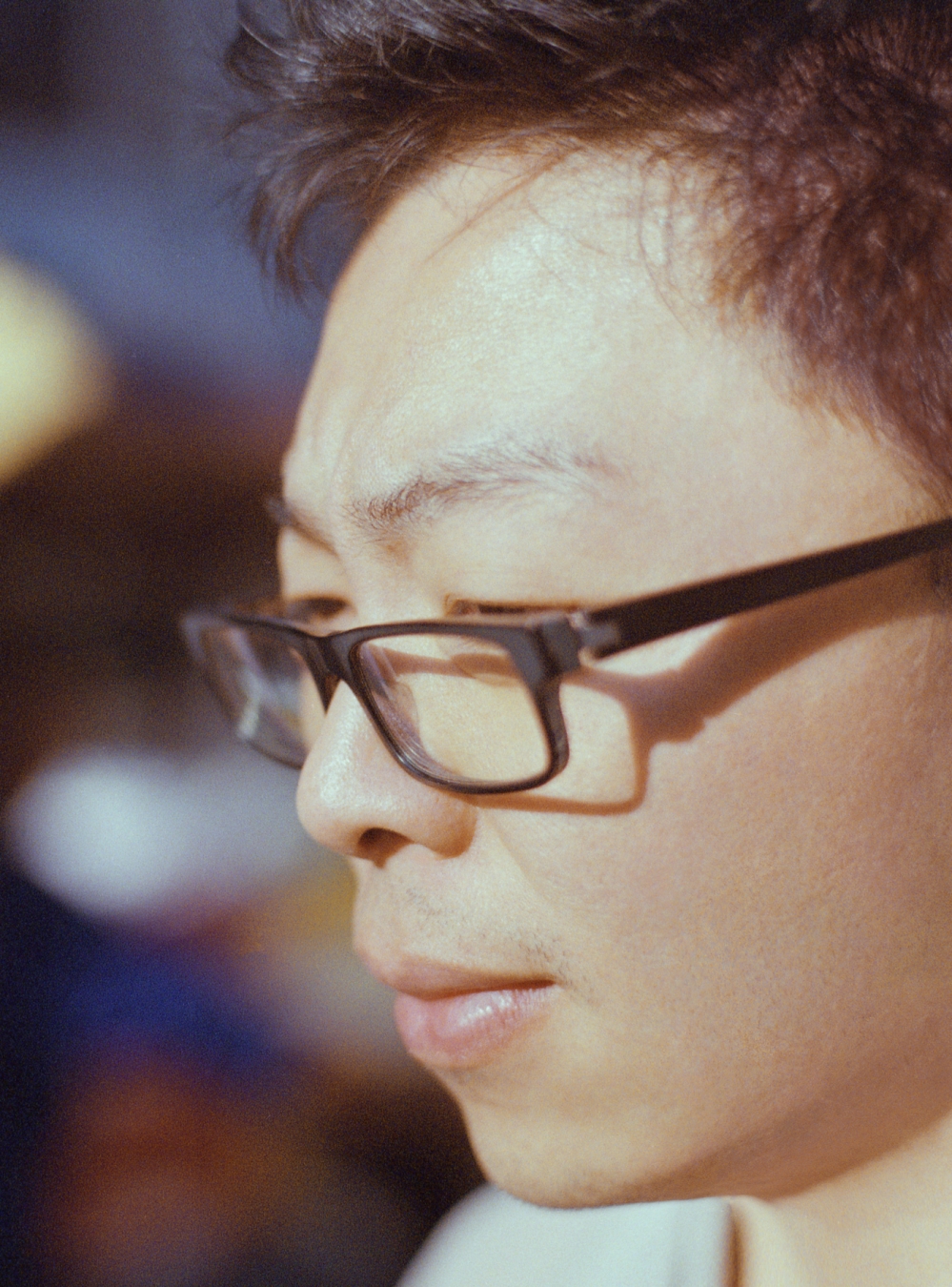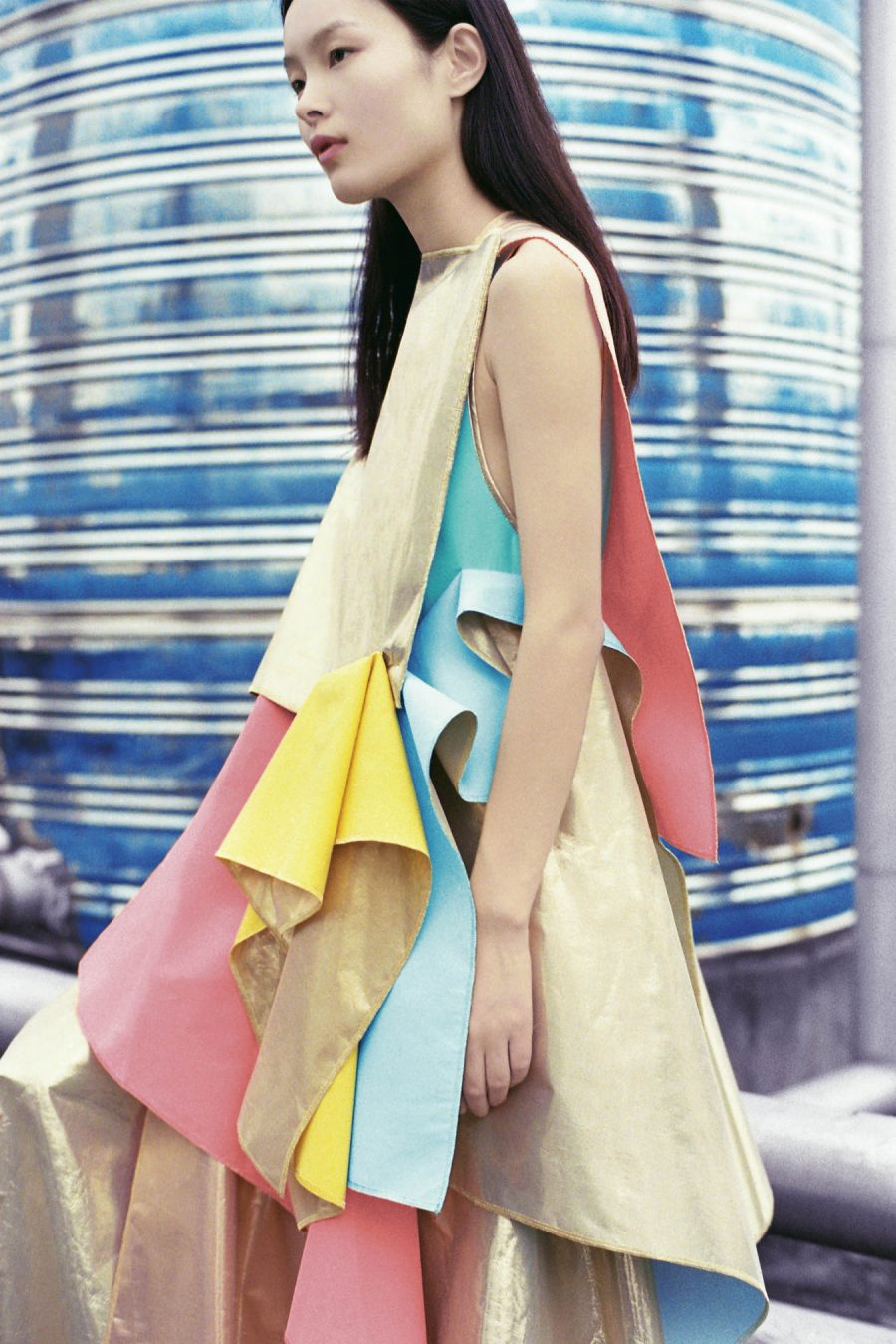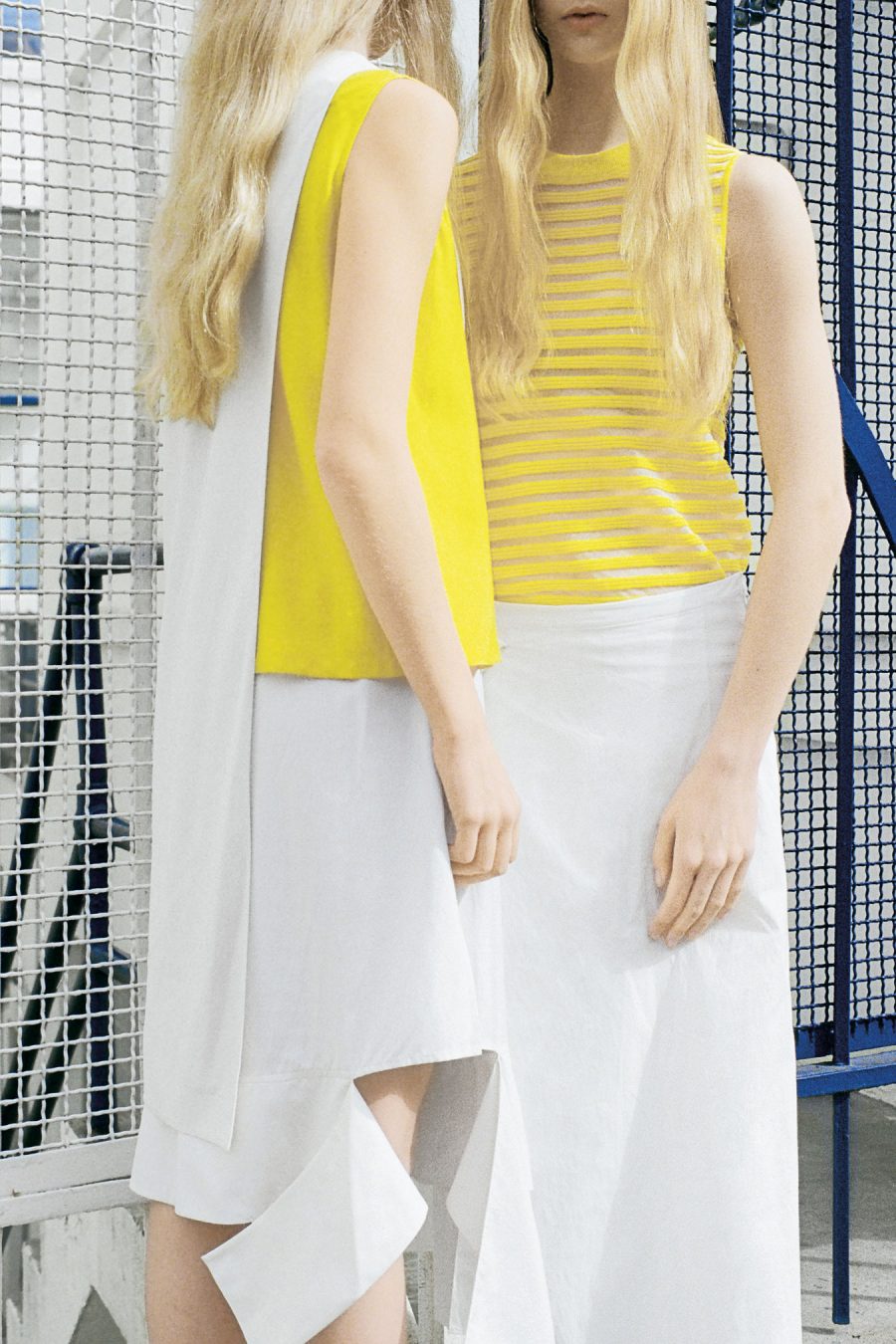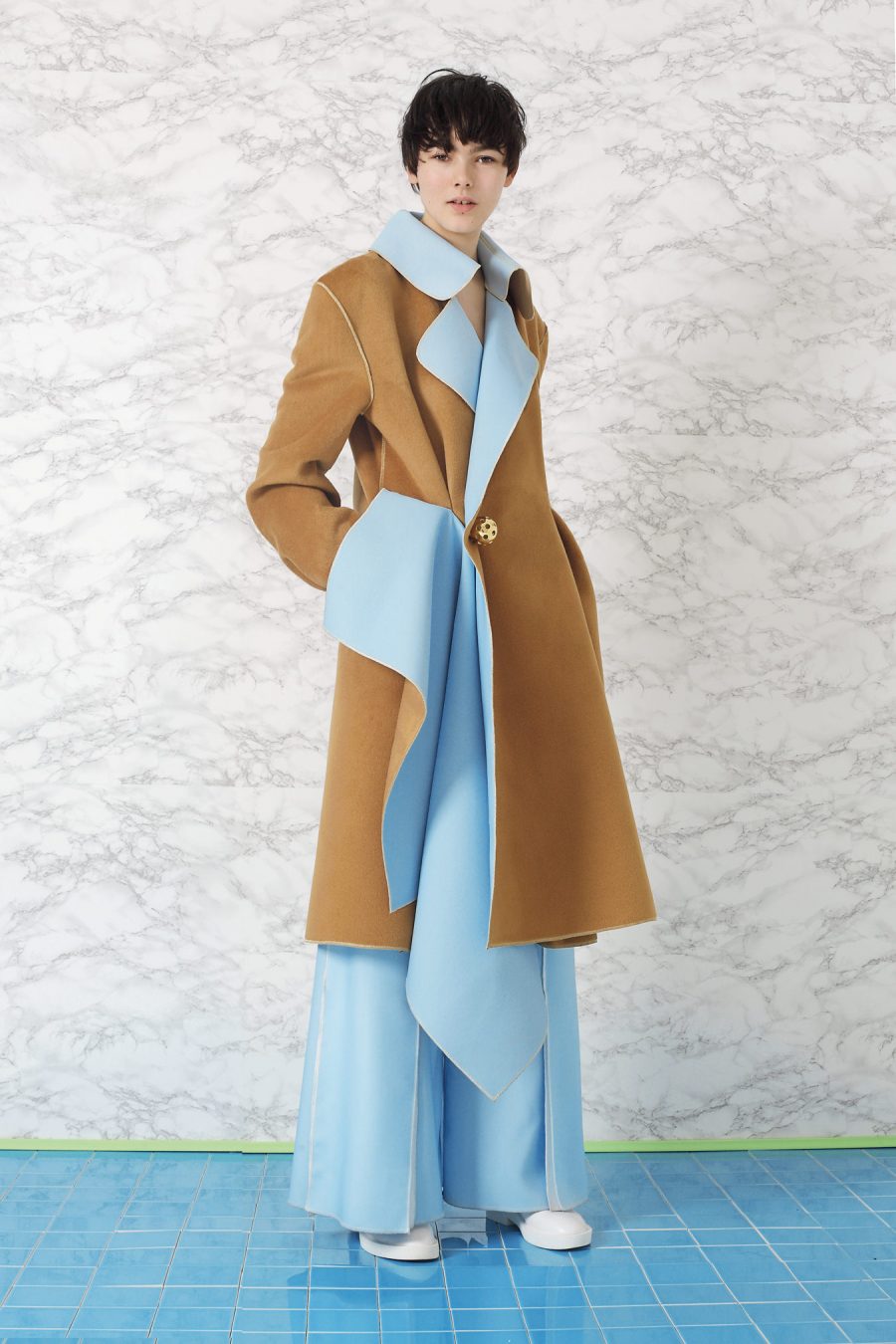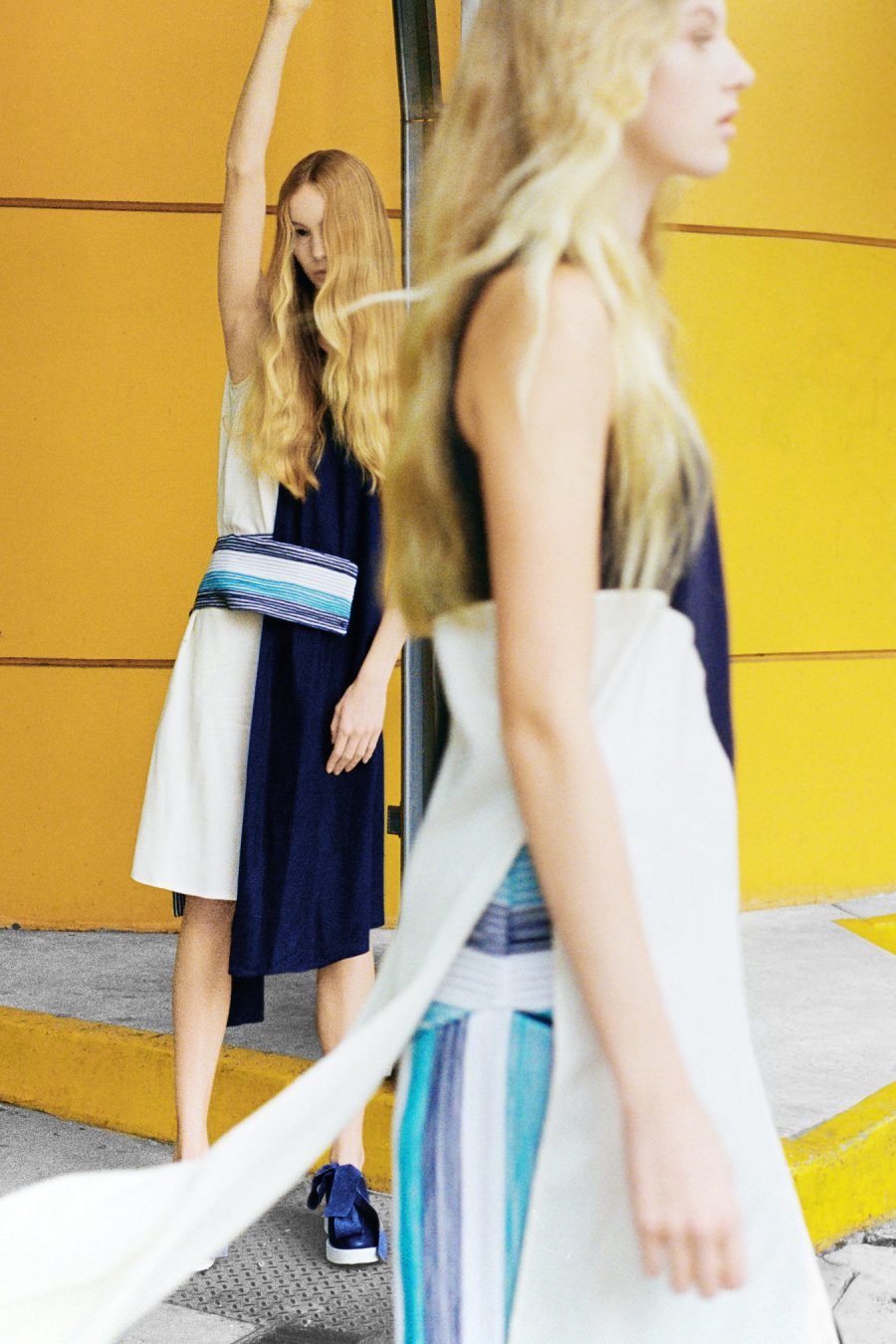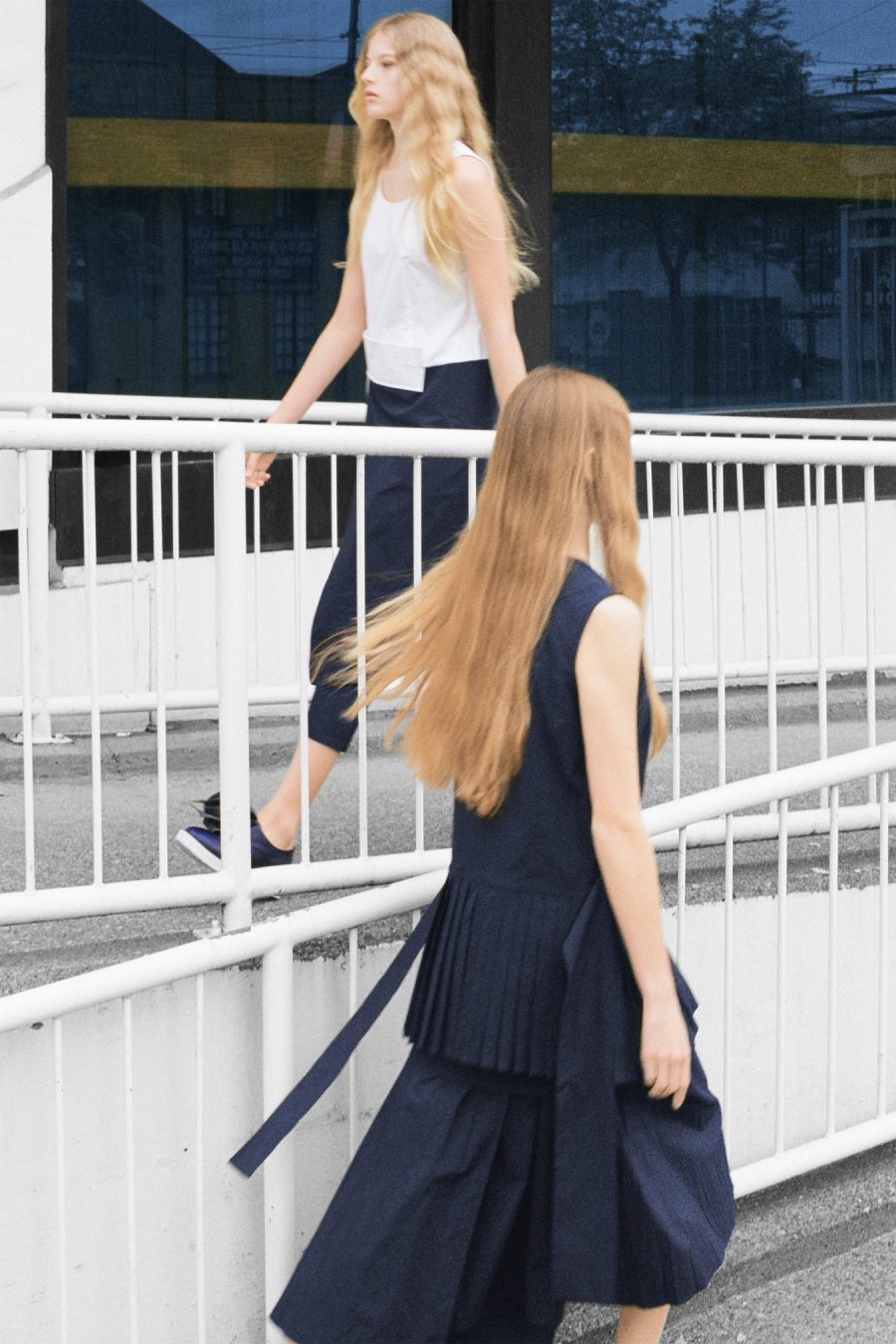It’s early May in London, England and Steven Tai is waiting for the bus. The Canadian womenswear designer should theoretically be home already, but there’s been a public transit delay. A constant flow of honking fills the air and a backlog of humming cars plugs the streets—a cacophony of urban chaos. “It’s kind of crazy,” Tai says. “There seems to be some problem with the traffic light, so the bus is taking a very long time to get here.” As he watches the disorder unfold, Tai seems calm and unaffected; this is, perhaps in its most basic form, the daily grind, and Tai is certainly no stranger to it. Having launched his own label in 2012, the admitted shy guy is involved in every aspect of the brand, from research and design to marketing and finances. “There are so many new brands popping up,” he says. “I think that’s the real difficulty of starting your own label. It’s almost a game of last man standing. No matter how amazing your work is, you have to be savvy enough to sustain it.” But the work does matter, most certainly, and Tai’s is worthy of the chatter.
Focusing on fabric and shape, Tai’s designs are playful, youthful, even humorous, allowing fashion to be fun. Yet at the same time, his work is highly artistic, and pointedly sophisticated in creation and design. By using lesser known materials, including liquid silicone and Lurex, and combining them in interesting ways, Tai produces clothing with incredible texture and silhouette. He doesn’t so much push the boundaries as he does create new ones, entirely his own, mixing tomboy with feminine, sport with haute. “I think that’s probably a reflection of my personality,” he says of his awkward-meets-casual aesthetic. “But I think it’s also reflection of modern times. I think girls and women are far less inclined to associate themselves with one kind of personality. There are so many roles we all have to play.” Though not one for overarching identity, Tai is a self-professed geek and lover of video games; he lets his inner nerd shine through in his clothing. “I love that [fashion] gives you a voice in an abstract way that people can adapt to and use for themselves,” he says. “The nice challenge about having your own brand is that it has to be consumer-friendly and realistic, and that’s the kind of interesting problem I enjoy solving—it evolves from solely creative to creatively making realistic clothes.”
“The nice challenge about having your own brand is that it has to be consumer-friendly and realistic, and that’s the kind of interesting problem I enjoy solving.”
Born in Macau and growing up in Vancouver, Tai was raised by parents who manufactured athletic wear. Though he was surrounded by fashion from a young age, he spent his childhood running around the factory, using fabric ends and hangers as toys, rather than learning the trade. “Growing up I didn’t think [garment production] was something I was interested in,” he says. “I found the actual garment making a part of the adult world.” Still, something must have rubbed off on him in his later years, because after studying marketing at UBC, he yearned for something more creative, and moved to London to earn his BA in fashion design from Central Saint Martins; he then went on to work at world-renowned labels including Stella McCartney and Viktor&Rolf. But it wasn’t until Yohji Yamamoto awarded him the inaugural Chloé Prize at the 2012 Hyères International Festival of Fashion and Photography that Tai realized he could, quite literally, make a name for himself. The Hyères buzz led to a sponsorship from Mercedes-Benz, which allowed him to present at Mercedes-Benz Fashion Week Berlin in July of that year. This collection of early accomplishments gave him the confidence to start his solo label, steventai. Since then he has received international attention; steventai is sold at Holt Renfrew in Toronto and Vancouver, and the brand has garnered press in major style publications including Vogue Paris, Vogue Italia, and Vogue Ukraine, as well as InStyle, Wonderland Magazine, Bullett Media, POP Magazine, and Style.com.
It is acclaim focused as much on his process as his results. Tai does mounds of research before beginning any actual sketches, making sure he has a clearly defined theme or concept before going ahead. “I think it’s a lot of exploration and also a lot of thought,” he explains. “It’s exploration in the sense of looking at new materials, going to shops I wouldn’t normally go to. At that time, it’s also kind of discovering how these materials might work in terms of—” he stops, his voice drowned out by a symphony of car honks. “It’s this traffic light!” he says with a laugh—because there he is, still standing on the curb—before refocusing. “I think it’s important to see how these materials relate to me or what I’m drawn to and what that means for my collection, what I want to express with the collection.” His upbringing, surrounded by sports clothing, has undeniably informed his adult work, as has the active lifestyle and laid-back vibe of Vancouverites. “I think it’s the welcoming attitude to new things, especially because it is such a multicultural city,” he says of his hometown. “I think it’s inspirational for me to adapt that and apply it to modern fashion.” Tai’s dad still lives in Vancouver, while his mother is based in Macau, continuing to work in manufacturing. Tai visits China often, as he is collaborating with Chinese clothing brand YMOYNOT, and also using his mother’s factory for his own line (he jokes that the only time he sees her is for business). With so much time spent in China it is perhaps no wonder that Tai is drawn to the industrial and mass produced, often wandering through a Toys “R” Us or Home Depot for inspiration. His clothing, however, is anything but regular.
“There are so many new brands popping up. I think that’s the real difficulty of starting your own label. It’s almost a game of last man standing. No matter how amazing your work is, you have to be savvy enough to sustain it.”
Looking forward, Tai is gearing up for a presentation during London Fashion Week at the end of September, his first showing with models in his adopted home. The opportunity is a special one for Tai. “For me that’s quite an important thing, because even though I’ve been based in London the entire time, and I’ve had catwalks in Berlin, France, New York, and Canada, we’ve never done anything in London,” he says. “I thought it was quite monumental to start building the presence here.” It’s a loud city, a crowded city, with sirens blaring and cars honking and buses delaying and just the right amount of bizarre for Tai, the purveyor of chic geek, the champion of the wonderfully weird.

